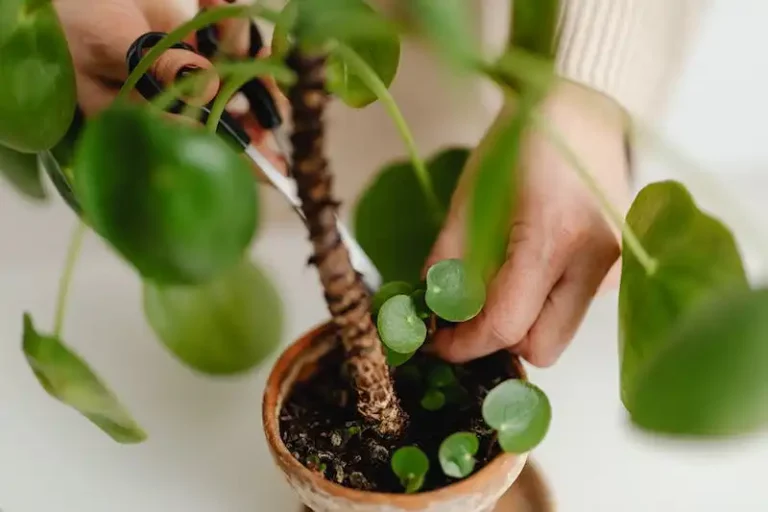Caraway is an aromatic plant native to Europe and Western Asia. It is known for its small, brown seeds that have a distinctive taste and smell. Caraway seeds are often used as a spice in cooking, adding depth and flavor to a variety of dishes.
The seeds of caraway are similar in appearance to cumin seeds but have a slightly different taste. They have a warm, slightly sweet, and lemony flavor that can enhance both sweet and savory dishes. Caraway seeds are an important ingredient in traditional European cuisine, especially in German, Austrian, and Hungarian dishes.
Caraway seeds can be used whole or ground, depending on the recipe. When using whole caraway seeds, they are usually added to dishes early in the cooking process to allow their flavor to develop. Ground caraway seeds are more suitable for dishes where a smoother consistency is desired, such as sauces, soups, or baked goods.
You can find caraway seeds in most grocery stores or spice markets. They are sometimes called “caraway fruits” due to their small size and shape. When purchasing caraway seeds, it’s important to store them properly to maintain their freshness and flavor. Keep them in an airtight container in a cool, dark place away from moisture.
In addition to their culinary uses, caraway seeds have been used for centuries for their potential health benefits. They are believed to aid in digestion, relieve symptoms of dyspepsia, and reduce bowel distress. Caraway seeds are also rich in antioxidants, which are beneficial for overall health and well-being.
However, it’s important to note that some people may have an allergic reaction to caraway seeds. Pregnant women should also exercise caution when consuming caraway seeds in large amounts, as they may have potential risks for the developing fetus. As with any dietary supplement, it’s always best to consult a healthcare professional for personalized advice.
In conclusion, caraway seeds are a versatile and flavorful ingredient that can enhance a wide range of recipes. Whether you use them whole or ground, their distinctive taste and aroma can add a brightness and depth to your dishes. Just remember to store them properly and use them in moderation to avoid any potential risks. So go ahead and spice up your next meal with a teaspoon or two of caraway seeds!
Caraway Is It Good for You
Caraway is a plant native to Europe and Asia that produces small seeds that are frequently used in cooking. While they may look like ordinary seeds, caraway seeds have a distinctive flavor that is often described as a mix between anise and fennel seeds, with a slightly sweet and licorice-like taste.
When it comes to their nutritional benefits, caraway seeds are packed with antioxidants, which can help reduce the risk of certain diseases and keep your body healthy. They also contain a significant amount of fiber, which is essential for digestion and can help reduce the risk of heart disease and other health conditions.
In terms of using caraway seeds in your daily diet, there are hundreds of recipes that call for their use. They can be added to breads, soups, stews, and even desserts for added flavor and aroma. If you can’t find caraway seeds in your local shops, they are often available online for easy purchase.
If you’re not a fan of the flavor of caraway seeds, there are some substitutes that you can use in your recipes. Fennel seeds or cumin seeds can be a close substitute, though they may not have the exact same flavor profile. However, they can still give your dishes a similar savory and aromatic touch.
When using caraway seeds, it’s important to note that pregnant women should consume them in moderation. Although caraway seeds are generally considered safe for consumption, excessive amounts could potentially cause digestive distress.
As for storage, caraway seeds should be kept in an airtight container in a cool, dry place. This will help retain their flavor and prevent them from going rancid. If stored properly, caraway seeds can last for up to two years.
In conclusion, caraway seeds are a flavorful and healthy addition to your cooking. Whether you use them as a spice or as a substitute, they can provide a unique taste and potential health benefits. So go ahead and give caraway seeds a try in your next recipe!
Nutrition Information
Caraway seeds, without a doubt, are a nutrition powerhouse. They are very low in calories and high in essential nutrients like fiber, vitamins, and minerals. These seeds have been used for centuries in cooking and as an herbal remedy for various ailments.
When it comes to their nutritional value, whole caraway seeds are a good source of vitamins and minerals. They are particularly rich in fiber, which is important for maintaining a healthy digestive system. Caraway seeds also contain high levels of antioxidants, which can help reduce the risk of chronic diseases.
Caraway seeds can be ground and used as a spice in various recipes. They have a unique flavor that is somewhat similar to anise or licorice, with a slight lemony brightness. It is recommended to toast the seeds before grinding them to enhance their taste.
If you are unable to find caraway seeds in your local grocery store, some good substitutes include fennel seeds or anise seeds. These spices have a similar taste and can be used in the same way as caraway seeds. However, keep in mind that the flavor may not be exactly the same.
In addition to their culinary uses, caraway seeds also have potential health benefits. They have been traditionally used to support digestion and relieve gastrointestinal discomfort. Some studies suggest that caraways may help improve bowel movements and reduce bloating.
It is important to note that caraway seeds are safe for most people to consume. However, some individuals may have an allergy to caraways or may be sensitive to their effects. If you have any concerns, it is best to consult with a healthcare professional before using caraway seeds or any herbal remedies.
In summary, caraway seeds are a versatile and nutritious spice that can be used in a variety of recipes. Whether used whole or ground, caraway seeds add a unique flavor and aroma to dishes. Their potential health benefits make them a valuable addition to your daily diet.
Potential Health Benefits of Caraway
Caraway seeds, known for their licorice-like taste and aromatic scent, have been used for centuries for their potential health benefits. Here are some potential health benefits of caraway:
- Antioxidant Properties: Caraway seeds are rich in antioxidants, which can help protect the body against damage caused by free radicals.
- Bowel Health: Caraway seeds may have beneficial effects on bowel movements and digestion, potentially helping to relieve indigestion, gas, and bloating.
- Heart Health: Caraway seeds could potentially support heart health by reducing cholesterol levels and improving blood pressure.
- Potential Anti-Inflammatory Effects: Some studies suggest that caraway seeds may have anti-inflammatory properties, which could be beneficial for reducing inflammation in the body.
- Improved Blood Sugar Control: Caraway seeds may contribute to better blood sugar control and stability, making them potentially beneficial for individuals with diabetes or those at risk of developing the condition.
- Possible Anti-Cancer Effects: Although more research is needed, some studies suggest that caraway seeds may have potential anti-cancer effects, particularly in preventing the growth of certain types of cancer cells.
- Aiding Digestion: Caraway seeds have traditionally been used to relieve digestive distress and promote healthy digestion.
Caraway seeds can be used in a variety of recipes to add a unique flavor and aroma. They are often used in breads, soups, stews, pickles, and potato dishes, among others. It is recommended to buy whole caraway seeds and grind them before using to preserve their freshness and flavor. If you don’t have caraway seeds on hand, you can substitute them with anise seeds or fennel seeds, although the flavor may be slightly different. It’s important to note that caraway seeds should be used in moderation, as their strong flavor can overpower other ingredients. Pregnant women and individuals with certain medical conditions should consult with their healthcare provider before using caraway seeds.
Potential Risks of Caraway
Caraway seeds are generally safe to consume and have been used in cooking and traditional medicine for centuries. However, there are a few potential risks to be aware of when using caraway in your recipes.
Firstly, some people may be allergic to caraway seeds. If you know or suspect that you have a caraway seed allergy, it is important to avoid consuming caraway or products that contain it.
Caraway seeds can also cause digestive distress in some individuals. If you consume a large amount of caraway seeds or consume them on an empty stomach, you may experience symptoms such as bloating, gas, or an upset stomach. It is best to start with a small amount and see how your body reacts before incorporating more caraway into your diet.
Another potential risk is the relatively high content of essential oil in caraway seeds. This oil can cause a burning sensation in the mouth or throat if consumed in large quantities or concentrated form. It is recommended to use caraway seeds in moderation and avoid consuming them in excessive amounts.
Lastly, if you are pregnant or breastfeeding, it is advisable to consult with your healthcare provider before incorporating large amounts of caraway seeds into your diet.
Although these potential risks exist, they are relatively minor compared to the health benefits caraway seeds can provide. It is a good idea to educate yourself about caraway seed risks, as well as its many uses and benefits, before incorporating it into your cooking and medicinal practices.
What Is Caraway and How Do I Use It
Caraway is a small, flavorful seed that is used in cooking around the world. It is one of the most commonly used spices and has a long history dating back to ancient times. Caraway seeds are often used to add a distinct and aromatic flavor to a variety of dishes.
Caraway seeds are known to have numerous health benefits. They are often used to aid digestion and provide relief from digestive distress. Caraway seeds are rich in antioxidants and can promote a healthy bowel movement. They can also be used as a substitute for other spices like cumin or fennel seeds.
Caraway seeds can be used in both whole and ground forms. Ground caraway seeds can be used in spice blends, rubs, and marinades. Whole caraway seeds can be added to soups, stews, potato dishes, and bread recipes for a slightly sweet and spicy flavor.
You can buy caraway seeds online or at specialty food shops. When purchasing caraway seeds, look for ones that are dark brown in color and have a strong aroma. It’s also important to store caraway seeds in an airtight container in a cool, dry place to maintain their flavor and freshness.
If you don’t have caraway seeds on hand, there are a few substitutes that you can use. Anise seeds have a similar licorice-like flavor and can be used as a substitute for caraway seeds in recipes. Cumin seeds and fennel seeds can also be used as substitutes, although they will give a slightly different flavor profile.
In conclusion, caraway seeds are a versatile spice that can add a distinctive flavor to your dishes. They have numerous health benefits and can be used in a variety of recipes around the world. Whether you are cooking daily meals or trying out new recipes, adding caraway seeds to your spice collection can greatly enhance the flavor of your dishes.



